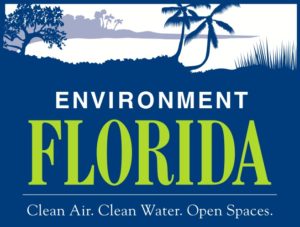
Climate change is heating global waters to unsustainable temperatures
The United Nations’ Intergovernmental Panel on Climate Change is releasing a report called Special Report on the Ocean and Cryosphere in a Changing Climate (SROCC) on Wednesday, detailing the scientific consensus on how global warming is impacting our oceans and our cryosphere, the frozen swaths of water surrounding the North and South poles.
The report makes it clear that we urgently need to reduce greenhouse gas emissions to stymie the environmental damage caused by overheated oceans. As global temperatures have risen, climate change has ravaged the ocean more than any other ecosystem — and the pace of oceanic transformation is accelerating, putting marine life and people who live in coastal areas at risk.
In response, Jenna Stevens, Environment Florida’s federal advocate, released the following statement:
“Climate change is already here and our oceans are worse off because of that. We know that even small temperature variations can lead to changes in animal migration patterns, acidic water and bleached coral. We put the things we love most in our oceans at greater risk with every degree of warming. And as polar ice melts and oceans rise, Florida’s coasts may soon be underwater.
“It won’t be easy to stall the momentum of decades of global warming pollution and minimize its damage. But we have the technology and know-how to move towards 100 percent clean, renewable electricity and transportation, and we should demand that businesses and governments that can make a difference take action. We also need to heal our oceans by promoting sustainable fisheries and permanently protecting our oceans’ most important, diverse and vulnerable ecosystems.
“Florida’s amazing marine animals — the whales, manatees, dolphins and sea turtles that captivate our imagination — are in trouble. It’s not their fault, and they can’t cut emissions and reduce global warming themselves. We need to do it for them.”
Environment Florida works for clean air, clean water, clean energy, wildlife and open spaces, and a livable climate. Our members across the state put grassroots support behind our research and advocacy. Environment Florida is part of Environment America, a national network of 29 state environmental groups.
